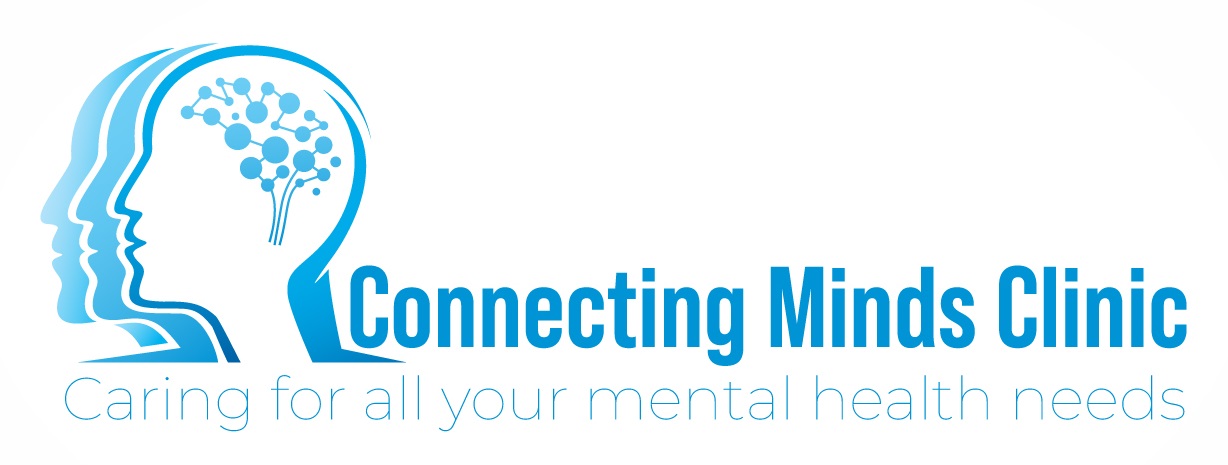Frequently asked questions:
What is the difference between Clinical Psychologist and Psychiatrist?

Psychiatrists are qualified medical doctors who has clinical expertise in mental health needs. Psychiatrists conduct a comprehensive yet tailored bio-psycho-social assessments to derive a formulation taking into account the issues, your strengths and weaknesses to determine the most effective combination of medications, psychological and social interventions that uniquely suit your needs. Most psychiatrists are able to provide psychotherapies.
Clinical psychologists are mental health professionals who are trained in the psychological treatment of behavioural, emotional, mental and personality disorders.
If you have a referral from your GP or a medical specialist to see a psychiatrist, you will be eligible for Medicare rebate. Different rebates apply for different appointment types. Your GP referral is valid for 12 months and a medical specialist referral is valid for 3 months. The referral enables our clinicians to correspond with the referring medical professionals.

Types of Medical Appointments available?
The first appointment is usually about 75 minutes. In this appointment the clinician will do their best to understand your individual issues and concerns of your accompanying family member. Occasionally, we will need more appointments to formulate and provide the best quality care to meet your individual needs. Conditions, such as ADHD, for example may require 3-4 more sessions before the initiation of medications alongside formulating a therapy and support plan.
We encourage you to email us in as detailed as possible your mental health needs alongside your referral from your GP or medical specialists a few weeks prior to your appointment.
After the first appointment, your clinician will advise you on follow up appointments.
Patients requiring a review of their medications or a new script written will usually attend a 45 mins appointment
You must at least be 15kms by road from the rooms
Within a telehealth eligible area as determined by the Australian Standard Geographical Classification Remoteness Area (ASGR-RA) classifications.
Appointment Costs
Connecting Minds Clinic does not bulk bill and deposit payment either via Bpay, direct deposit or credit card is taken prior to the confirmation of the appointment.
The costs vary for each clinician and for the duration and type of appointment booked.
How soon can i get an appointment?
The estimated waiting time is variable and dependent on the clinician. The current wait time is approximately 2-3 months, however, we can place you on the waitlist and advise you if an earlier appointment becomes available
what will happen at your 1st appointment?
Your first appointment with vary between 1-2 hours and at times even longer. The duration of your first appointment depends on your circumstances, your age, and the style of the clinician assessing you.
– FOR YOUNGER CLIENTS LIVING WITH PARENTS/CARERS
The initial appointment is with the child or adolescent and all family members if possible. If this is not possible then at a minimum one parent/carer is required to also attend. If time permits, the Clinician will also see parents/carers/siblings and the child/ adolescent separately at this appointment. For continuing appointments, further follow ups may be required with the parents, separate to the patient, or in unison. This will be determined after the first appointment.
– FOR CLIENTS LIVING INDEPENDENTLY
The initial appointment is with the patient, however if time permits and it is the desire of the patient, the Clinician will also see the parents/carers together with the patient.
- For the Psychiatrists, a referral for the patient from their General Practitioner or Specialist is required (Please be aware that a GP referral is valid for 12 months and a Specialist referral for 3 months). This ensures we are in contact with your GP and also allows us to process your medicare rebate for you at the time of payment.
- If you are seeing a psychologist, you will need a mental health care plan and a referral template to be completed by your GP. Click here to download the template required.
- Medicare card
- Letters or reports that you have from other professionals who have been involved, such as a school counsellor, teacher, psychologist or paediatrician.
Your Psychiatrist will:
– Listen and talk about your concerns and symptoms
– Ask questions about general health
– Ask about your family history
– Often gives you a time separate from the family to discuss any issues in confidence
There will usually be a lot of questions. The long appointment gives the psychiatrist time to listen and hear your whole story.
They might also want to speak with other health professionals or members of your family.
Your psychiatrist may order some more tests to help them understand what is going on.
To get more specific information please talk to administration staff before coming in for your first session.
The first appointment is usually about 75 minutes. In this appointment the clinician will do their best to understand your individual issues and concerns of your accompanying family member. Occasionally, we will need more appointments to formulate and provide the best quality care to meet your individual needs. Conditions, such as ADHD, for example may require 3-4 more sessions before the initiation of medications alongside formulating a therapy and support plan.
We encourage you to email us in as detailed as possible your mental health needs alongside your referral from your GP or medical specialists a few weeks prior to your appointment.
After the first appointment, your clinician will advise you on follow up appointments.
common questions about mental health
Mental health includes our emotional, psychological, and social well-being. It affects how we think, feel, and act. It also helps determine how we handle stress, relate to others, and make choices. Mental health is important at every stage of life, from childhood and adolescence through adulthood.
Mental illness, also called mental health disorders, refers to a wide range of mental health conditions — disorders that affect your mood, thinking and behavior. Examples of mental illness include depression, anxiety disorders, schizophrenia, eating disorders and addictive behaviors.
Simply put, this is when our mental health is not what we would want it to be. Finding it difficult to manage how we think, feel, act with respect to daily stresses could be a sign of poor mental health. Having continuous episodes of mental ill health could indicate a problem.
Mental illness itself occurs from the interaction of multiple genes and other factors — such as stress, abuse, or a traumatic event — which can influence, or trigger, an illness in a person who has an inherited susceptibility to it.
- Excessive paranoia, worry, or anxiety.
- Long-lasting sadness or irritability.
- Extreme changes in moods.
- Social withdrawal.
- Dramatic changes in eating or sleeping pattern.
A nervous or mental breakdown is a term used to describe a period of intense mental distress. During this period, you’re unable to function in your everyday life. This term was once used to refer to a wide variety of mental illnesses, including: depression. anxiety.
Treatment can involve both medications and psychotherapy, depending on the disease and its severity. At this time, most mental illnesses cannot be cured, but they can usually be treated effectively to minimize the symptoms and allow the individual to function in work, school, or social environments.
- Marked changes in personality, eating or sleeping patterns.
- An inability to cope with problems or daily activities.
- Feeling of disconnection or withdrawal from normal activities.
- Unusual or “magical” thinking.
- Excessive anxiety.
- Prolonged sadness, depression or apathy.
- depressive symptoms, such as loss of hope and thoughts of suicide or self-harm.
- anxiety with high blood pressure, tense muscles, clammy hands, dizziness, upset stomach, and trembling or shaking.
- insomnia.
- hallucinations.
- extreme mood swings or unexplained outbursts.
Psychotherapy is the therapeutic treatment of mental illness provided by a trained mental health professional. Psychotherapy explores thoughts, feelings, and behaviors, and seeks to improve an individual’s well-being. Psychotherapy paired with medication is the most effective way to promote recovery.
medical cost & payments?
For the precise information about costs for each clinician and appointment type, please do not hesitate to contact us and we can advise on the approximate Medicare rebate you will receive and your out of pocket expense.
Please be aware that the Medicare rebate amount does vary depending on the appointment type and if you have reached your Medicare safety net limit.
For Psychiatrists: If you have not yet reached the Medicare safety net limit, you can expect to receive up to 70% from the Medicare rebate. If you have reached the Medicare safety net limit, you can expect to receive up to 95% return for every appointment after the limit has been reached.
For Psychologists: If you have a Mental Health Treatment Plan you may be eligible to receive a Medicare rebate of $128.40 (for a clinical psychologist) per individual session for up to 10 sessions per calendar year.
We will process the Medicare rebate upon payment on your behalf, if you have an active referral. Medicare will then pay the rebate directly into your bank account. This process normally takes approx. 5 working days.
The Medicare safety net is reached when you have spent $2184 for singles and families (within a calendar year). Please note that commonwealth concession card holders including those with a pensioner concession card, a health care card, or a commonwealth seniors’ card is set at $697.
Couples and families should contact the Department of Human Services – Medicare, to register their family members as part of a safety net eligible family. Registering as a family allows eligible out-of-pocket costs for each individual family member to count towards the family’s Extended Medicare Safety Net (EMSN) threshold. Couples and families need to register even if all family members are listed on the Medicare card. Registration is only required once, unless family members change, for example, if a student child is no longer studying full time or you have a newborn baby.
Please contact the office as soon as possible if you need to cancel an appointment so that we can offer the appointment to families on our waiting list.
Get One Step Ahead Of Disease
At Connecting Minds Clinic, we are focused on improving mental health outcomes for children, adolescents and young adults. At the very heart of our expertise, passion and services, is ensuring we meet the evolving and unique needs of young people and those who support them. We specialise in the mental health care for children, adolescents, young adults and their families through a multidisciplinary family focused approach, encompassing medical expertise as well as individual and family therapy.
Address
Suite 122/330 Wattle St, Ultimo, NSW 2007 Sydney Australia
Call Us
(02) 98582350








